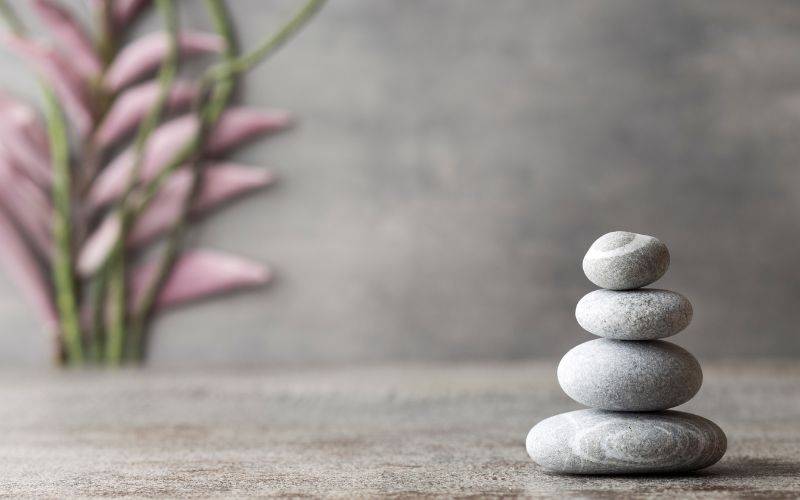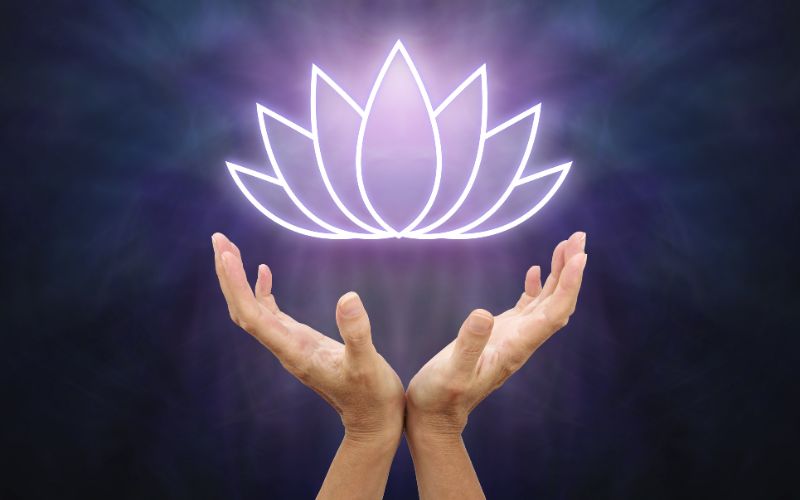Qi is a concept that holds significant importance in Traditional Chinese Medicine (TCM) and alternative medicine practices.
This article will explore the meaning of Qi, its role in healing practices such as therapeutic touch and energy healing, and how it differs from conventional medicine.
We will also discuss the scientific perspective on Qi and its potential benefits for overall well-being.
Join us on a journey to uncover the mysteries of this ancient concept and its relevance in modern healthcare systems.

In Traditional Chinese Medicine (TCM), Qi is often described as the vital energy or life force that flows through the body. It is believed to be essential for maintaining good health and well-being.
According to TCM principles, Qi circulates through channels known as meridians, connecting various organs and systems in the body. When the flow of Qi is disrupted or blocked, it can lead to illness or imbalance.
There are different types of Qi in TCM, including:
- Yuan Qi: This is the original or ancestral Qi that a person inherits from their parents. It is considered to be the foundation of all other types of Qi.
- Zong Qi: This type of Qi is associated with the lungs and is responsible for breathing and the circulation of oxygen in the body.
- Ying Qi: This type of Qi is related to nourishment and the distribution of nutrients throughout the body.
- Wei Qi: This type of Qi is known as defensive Qi and is responsible for protecting the body against external pathogens and invasions.
Chinese TCM Practitioners believe that maintaining a balance of Qi is essential for overall health, and various techniques such as acupuncture, herbal medicine, qigong, and tai chi are used to help restore harmony to the flow of energy in the body.
Exploring the Different Meanings of Qi
The concept of Qi isn’t limited to Traditional Chinese Medicine and alternative healing practices.
The idea of energy as a vital force that permeates all aspects of life can be found in various cultures and disciplines around the world.
In Hindu philosophy, for example, the term “prana” is used to describe a similar concept of life force energy that flows through the body and sustains all living beings.
Similarly, in Japanese culture, the term “ki” is used to refer to a universal energy that influences health, vitality, and spiritual growth.
In modern scientific terms, the idea of energy as a fundamental aspect of existence can be seen in fields such as physics and biochemistry.
Energy is recognized as the capacity to do work or produce change, and it plays a crucial role in all biological processes within the human body.
While the concept of Qi may not have a clear scientific explanation, its importance in promoting overall health and well-being cannot be denied.
Whether through practices like acupuncture, qigong, or therapeutic touch, many people continue to benefit from the ancient wisdom of balancing and harmonizing their body’s energy.
Qi in Alternative Therapies

In addition to its role in TCM, the concept of Qi is also central to many alternative healing practices such as therapeutic touch and energy healing.
These therapies focus on manipulating the body’s energy field to promote health and well-being.
- Therapeutic touch, for example, involves the practitioner using their hands to sense and manipulate a patient’s energy field to restore balance and promote healing.
- Energy healing practices such as Reiki also work on the principle of channeling universal energy to support the body’s natural healing process.
While these practices may not be scientifically proven, many people report feeling a sense of relaxation, stress relief, and improved overall well-being after receiving these treatments.
Scientific Perspective on Qi
From a scientific perspective, the concept of Qi is often viewed skeptically due to its lack of empirical evidence.
Critics argue that there is no measurable way to quantify or prove the existence of Qi, making it difficult to integrate into conventional medical practices.
However, some researchers suggest that the concept of Qi may be related to bioelectric or electromagnetic fields in the body.
Studies have shown that acupuncture points correspond to areas of increased electrical conductivity, suggesting a possible physiological basis for the flow of Qi through the meridians.
Furthermore, research on practices such as qigong and tai chi has demonstrated benefits for physical and mental health, including improved balance, flexibility, and stress reduction.
While these effects may not be directly linked to the concept of Qi, they highlight the potential benefits of mind-body practices for overall well-being.
The Role of Qi in Health and Wellness
In Traditional Chinese Medicine, Qi is believed to play a crucial role in maintaining overall health and wellness.
According to TCM principles, the balance and flow of Qi throughout the body are essential for preventing disease and promoting vitality.
When Qi is blocked or imbalanced, it can lead to various health issues such as pain, fatigue, and illness.
Acupuncture and other TCM therapies aim to restore the flow of Qi through the body’s meridians to address these imbalances and support healing.
Furthermore, the concept of Qi extends beyond physical health to include mental and emotional well-being.
In TCM, emotions are seen as a manifestation of the movement of Qi within the body.
For example, excessive worry or fear can disrupt the flow of Qi and lead to symptoms such as anxiety or insomnia.
By addressing imbalances in Qi through practices like acupuncture, herbal medicine, and qigong, TCM practitioners aim to restore harmony within the body and promote overall well-being.
Lau Of Natural Healing TCM: Discover the Power of Qi for Your Wellness Journey
If you are looking to explore the concept of Qi and its role in promoting health and wellness, consider starting your wellness journey with Lau Of Natural Healing TCM.
Lau Of Natural Healing TCM offers a variety of wellness classes and therapies grounded in the principles of Traditional Chinese Medicine to assist in balancing and harmonizing your body’s energy.
From acupuncture and herbal medicine to qigong and therapeutic touch, you can experience the benefits of these ancient healing practices under the guidance of experienced practitioners.
By incorporating practices that focus on restoring the flow of Qi throughout your body, you can support your overall well-being and address any imbalances that may be affecting your health.
Whether you are seeking relief from physical pain, stress reduction, or emotional support, the holistic approach of Lau Of Natural Healing TCM can help you achieve greater balance and vitality in your life.
To learn more about how Traditional Chinese Medicine and the concept of Qi can benefit your health and wellness.
Get in touch with Lau Of Natural Healing TCM today to schedule a consultation or sign up for a wellness class. Take the first step towards achieving optimal health and well-being through the power of Qi and ancient healing practices.
Conclusion
In conclusion, understanding the concept of Qi in Traditional Chinese Medicine involves recognizing its role in promoting overall health and well-being.
While it may not align with conventional Western medical beliefs, many individuals continue to find benefit in incorporating alternative therapies that focus on balancing and harmonizing their body’s energy.
By working to restore the flow of Qi through practices like acupuncture, qigong, and tai chi, individuals can experience improved vitality, reduced symptoms of illness, and enhanced emotional well-being.
Incorporating the ancient wisdom of Qi into modern healthcare systems allows for a holistic approach to healing that addresses not just physical symptoms but also the underlying energetic imbalances within the body.
By embracing the concept of Qi and its importance in maintaining health and vitality, individuals can take proactive steps toward achieving overall well-being and balance in their lives.
FAQs
Qi, often referred to as vital energy or life force energy, is a concept in Traditional Chinese Medicine that represents the flow and balance of energy within the body. It is believed to play a crucial role in maintaining overall health and well-being.
Various practices can help balance your Qi, such as acupuncture, qigong, tai chi, herbal medicine, and therapeutic touch. These therapies aim to restore the flow of Qi through the body’s meridians and address imbalances that may be causing health issues.
While the concept of Qi may not have a clear scientific explanation according to Western medical standards, there is growing interest in research on energy healing and alternative therapies that focus on balancing the body’s energy. Some systematic reviews have shown promising results for practices like acupuncture in treating various health conditions.
While Qi can’t be measured or quantified in the same way as physical parameters like blood pressure or cholesterol levels, practitioners of Traditional Chinese Medicine use diagnostic techniques such as pulse diagnosis and observation of symptoms to assess a person’s Qi balance. Some alternative therapies also rely on biofeedback devices to provide feedback on energy flow within the body.
There are many ways to incorporate the concept of Qi into your daily life, such as practicing mindfulness, meditation, yoga, or other mind-body exercises. Eating a balanced diet, getting regular exercise, staying hydrated, and getting enough rest are also important for maintaining healthy energy levels.








